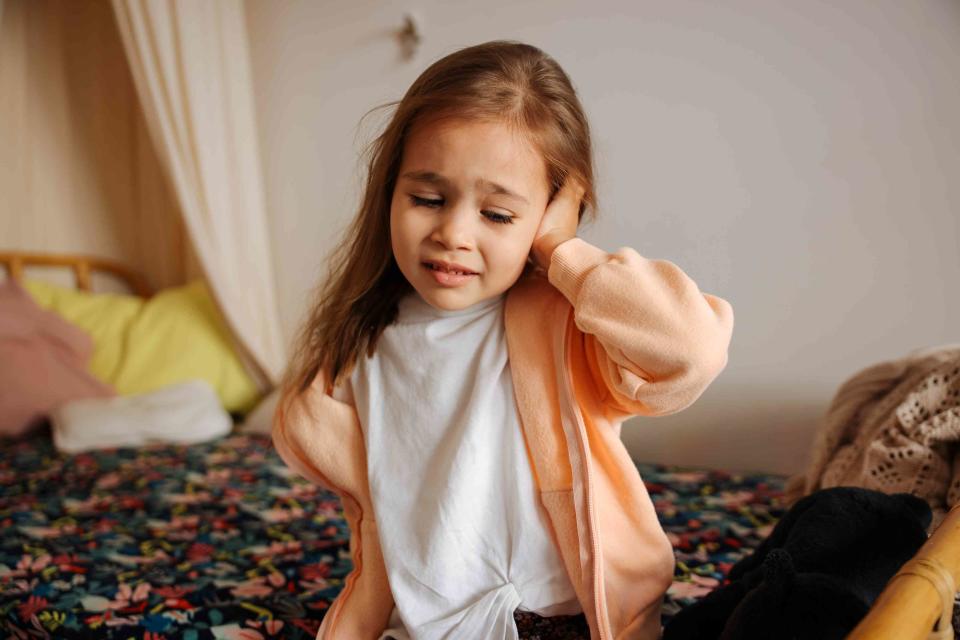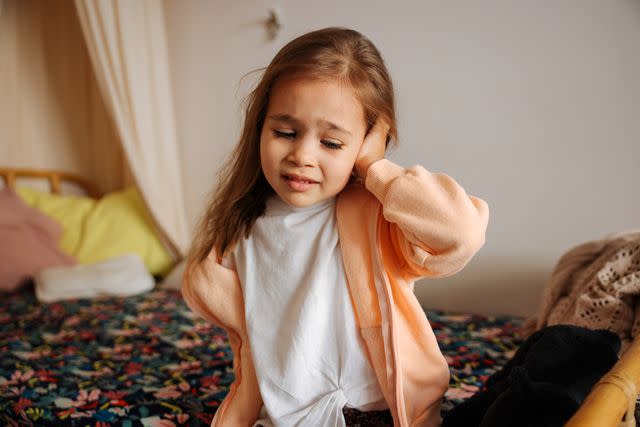How to Stop an Earache Fast
At-Home Treatments for Earache and When to Get Help

ozgurcankaya / Getty Images
Medically reviewed by Jordana Haber Hazan, MD
Ear pain is can happen at any age, but an earache doesn’t necessarily mean you have an ear infection. Possible causes of ear pain can range from jaw issues or a tooth infection to sinuses or a recent bout of the flu. The pain could also be caused by excessive earwax, which can then cause muffled hearing, irritation, and pain.
This article covers what you need to know to treat earaches at home and how to reduce the pain of an earache.

ozgurcankaya / Getty Images
How to Stop an Earache Fast: Determining the Cause
There are several possible causes of an earache, including:
Arthritis of the jaw
Tooth infection
Sore throat or a recent flu-like illness
The most common type of ear infection is otitis media, an infection of the middle ear, which is behind the eardrums. This infection is caused by blockages in the eustachian tube, which runs from the middle of the ear to the back of the throat. Causes of otitis media include:
Determining Causes: Infection vs. Wax
Signs that an ear infection is the cause of an earache include:
A recent bout of flu or cold
Fever, cough, nasal congestion, and other general symptoms of illness
In children, irritability, tugging at ears, or inability to sleep
Fluid drainage from the ear
Hearing loss in the infected ear
Loss of appetite
An ear infection caused by earwax might include symptoms like:
Ringing, buzzing, or other sounds in the ear (tinnitus)
Dizziness (vertigo)
Feeling ill
Feeling a blockage in the ear
Symptoms for Other Causes of Earache
Symptoms of TMJ or jaw arthritis include:
Face, head, or neck pain
Stiffness and mobility issues in jaws
Jaw clicking or popping
Teeth resting differently
If an eardrum is ruptured, symptoms might include:
Hearing loss
Ear drainage
Buzzing in the ears
Dizziness
Weakness in the face
Other Possible Causes of Earaches
Other possible causes of earaches include:
Tooth infection/cavities: Pain from tooth infections can spread throughout the jaw and ears.
Tonsillitis: Pain swallowing along with an earache could mean a throat infection like tonsillitis, which is an infection of the lymph nodes in the back of the throat.
Teeth grinding: Since the ear canal is close to the jaw, pain from grinding teeth can travel toward the ears.
Objects in the ear: This includes foreign bodies and using a cotton swab too roughly.
When to Get Medical Attention for Earaches
If earache doesn't lessen after one or two days, or the pain is accompanied by the following symptoms (especially in children), see a healthcare professional:
Symptoms persist or get worse
A person has three or more ear infections in six months
Pain is severe
In adults, persistent ear pain could mean jaw or tooth problems that a specialist like a dentist or physical therapist can address.
Home Care to Relieve Ear Pain Fast
The following are home care tips for relieving ear pain fast:
Warm compress or ice pack: Heating or icing pain can decrease inflammation, increase blood flow, and reduce stiffness in muscles.
Use a heating pad: A heating pad can reduce pain and the throbbing sensation in the ear.
Over-the-counter ear drops with pain relievers: These usually contain antipyrine and benzocaine and reduce swelling and pain.
Pain relievers: Tylenol (acetaminophen), Advil (ibuprofen), and Aleve (naproxen) can be used to help reduce pain.
Chewing gum: This is especially effective during flights when air pressure changes can block tubes in the ear.
Sleep upright: Lying down with an ear infection can create pressure and more pain. If a child cannot sleep because of an earache, putting them in an upright position could help.
Eat garlic and/or ginger: Studies indicate garlic oil might help treating ear infections or enhancing the effects of antibiotics. Both ginger and garlic have antibacterial properties.
Hydrogen peroxide: Hydrogen peroxide can help loosen earwax blockages.
Oil on a cotton ball (tea tree oil or olive oil): Oils can soften earwax and make it easier to remove.
Neck exercises: Neck exercises can help with jaw issues, which can in turn, relieve ear pain.
Try chiropractic treatment: A chiropractor may be able to pinpoint trigger points in the body that could be causing ear pain and recommend exercises and adjustments for relief.
Distraction: Engaging in enjoyable activities or thinking of things other than your ear pain could help manage temporary ear pain.
Ear Pain in Adults and Children
Most ear infections go away on their own. Children are more likely than adults to have earaches caused by infections. For adults, ear pain is more likely to be caused by jaw or teeth issues. When using home remedies for earaches, pain should lessen in about two days. If it does not, see a health care provider to check for an infection, especially in children.
Children or adults with persistent ear pain may experience dizziness, high fever, or severe pain. For adults, persistent ear pain could be a sign of teeth or jaw issues. Some of these could be healed by improving oral hygiene or stretching jaw muscles. An anti-inflammatory diet and avoiding actions like chewing gum or relieving stress could also help.
When to Call a Healthcare Provider
If an earache doesn't subside within two to three days or occurs with severe pain,, it's advised to get medical attention to treat a possible infection.
Summary
Earaches are usually caused by infection in children and physical issues like jaw problems and earwax in adults. To determine the cause of an earache, look for other symptoms. An ear infection can result from allergies or recent colds. Hearing and dizziness can be caused by earwax buildup. Jaw stiffness or pain and tooth issues, including oral hygiene, can also cause ear pain.
Ear infections are usually treated with antibiotics or left to resolve on their own. Home remedies to treat earaches include using oil and a cotton pad to clean out the ear, eating garlic or ginger, and sleeping in an upright position to relieve pressure. Finding distractions can take your mind off of the pain.

